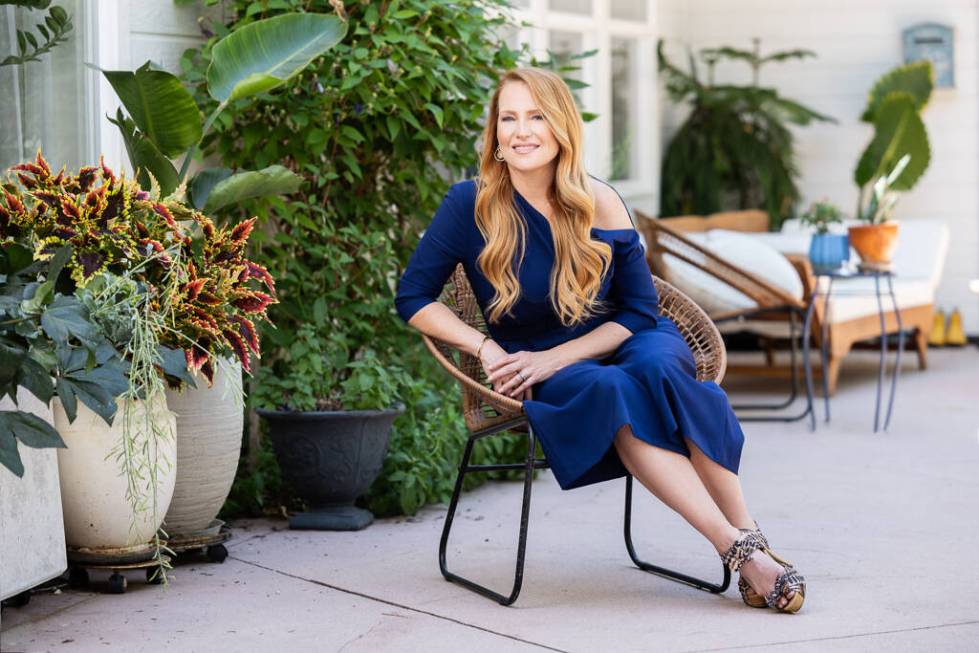Las Vegas company donates emergency phones to abuse victims

According to Tobhiyah Green, the old electronics piling up in your drawers at home are destined to become something greater than junk.
Green, who co-owns the Las Vegas-based electronics recycling company Green Squared, oversees the organization’s emergency phone program, which puts phones in the hands of victims of domestic violence.
At its inception, Green Squared was a small-scale operation that collected glasses with Lions Clubs International. Nearly two decades later, Green said, the company has come to exemplify how something discarded can have an exponential impact.
”It’s in the bigger cities where we see a need for a program like this,” Green said. “Being from Vegas, I felt compelled to support these nonprofits in any way possible. I personally have seen people in vulnerable positions, so I try to think about how to help without enabling an unhealthy situation.”
So, Green Square pivoted and began partnering with local shelters, nonprofit organizations, and police departments to provide hundreds of free cell phones to victims of domestic violence.
Safe House, an emergency shelter for those seeking refuge from violence, the Southern Nevada Family Justice Center, a multi-agency effort designed to help victims meet their needs in one place, and the Metropolitan Police Department are some of Green Squared’s partners in the valley.
“911 phones from Green Squared are a crucial resource for domestic violence victims,” said Beth Flory, the executive director of S.A.F.E House. “We’ve seen situations where abusers have destroyed victims’ phones or — even more dangerously — tracked their locations. Many of our clients also experience financial abuse, leaving them unable to replace their cell phones if needed. By providing access to a 911 phone, we enhance their safety, ensuring they have a lifeline if they encounter their abuser without another means to call for help.”
Green said the company once distributed roughly 400 devices to victims of abuse in a month.
The intake process
For the most part, Green said, donations come from either household and community cleanouts or unclaimed lost and found liquidations from hotels and casinos. The company has also expanded to accept items from cruise lines, theme parks, stadiums, transit companies, and police and sheriff departments.
Donations are not limited to cell phones; Green Squared also accepts chargers, tablets, cameras, headphones, and more. Green said these miscellaneous items, though not ideal for the 911 program, can be broken down into pieces and sold to cover the company’s overhead and shipping.
The intake process is simple, according to Green.
When you lose your phone on the Strip, it may end up in the lost and found of a nearby casino or hotel that Green Squared partners with. If the electronic device or accessory goes unclaimed for over 30 days, casino management will ship it to Green Squared’s factory in Idaho.
Individuals wanting to donate items from home also ship to Idaho using a free label generator on the Green Squared website. The second after the items are shipped out, Green Square assumes total liability for the data associated with the devices.
Regardless of whether the device is locked behind a password, Green said, you don’t have to worry about your private information being leaked when you donate to Green Squared.
Data is erased
After the Green Squared warehouse receives the items, technicians wipe them, promising to delete all personal information permanently. According to their website, data is erased “three times over.” Once this is done, Green said, the information becomes irretrievable.
“Your phone probably has more personal data than you would have in a safe,” Green said. “It has your passwords, access to your bank accounts, and everything else. So, we have a 100 percent data destruction guarantee. We will process those items for you and keep them out of landfills.”
Green Squared has also committed to a “zero landfill” pledge, citing that all raw materials processed by the company are eventually turned into something new — hence the emergency phone program — instead of being trashed.
“We protect people’s privacy, support community outreach programs, and keep devices out of landfills,” Green said. “That’s why we are called Green Squared. Because the impact multiplies. You never know. The phone you almost threw away could end up in the glove compartment of someone who needs it most. ”
Spreading the word
After technicians wipe data from the phones, they double and triple-check that the phones function correctly, meaning they turn on and charge efficiently. For the emergency phone program, it is best if the devices can be unlocked and connected to Wi-Fi; however, Green said that even locked phones can dial 911.
Rounding out the process, the warehouse ships these phones to organizations in need.
In the past, Green Squared has also worked with local schools to hold electronic donation drives. Parts from donated non-functioning electronics were sold, with the proceeds going to the school. As a result, Green said that kids who had never had a prom had been able to do so for the past four years.
“It is all about spreading the word. Anybody — schools, churches, community groups — can do a recycling campaign or collection drive,” Green said. “The only barrier to creating more resources and positive change is that people might not know about us yet.”
Contact Akiya Dillon at adillon@reviewjournal.com.